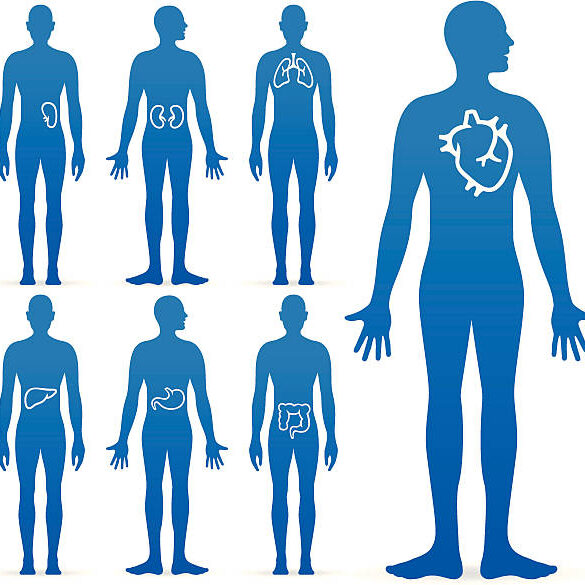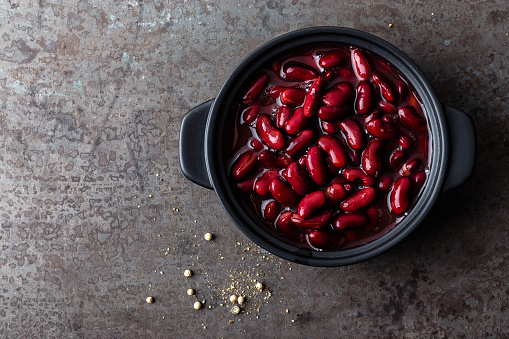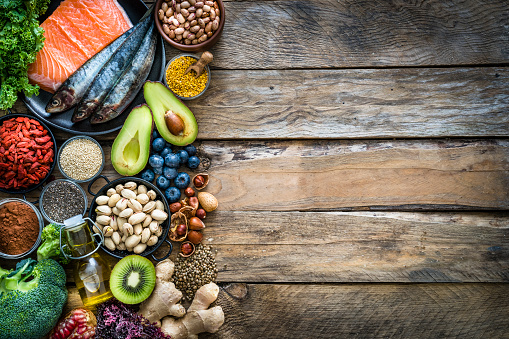Fiber is generally the bulk composed parts of plant foods that our bodies cannot digest easily. In simpler words, dietary fiber are the carbohydrates that passes very intact through our stomach, small intestine, colon and out of the body.
Fiber is sub divided as Soluble Fiber and Insoluble Fiber
Soluble Fiber
Is the one that dissolves in water to form a gel like substance that aids lowering the blood cholesterol and glucose levels.This slows the digestion. Some soluble fibers are said to be reducing risk of heart diseases as well.
Insoluble Fiber
It aids the movement of materials through our digestive system adding bulk in the stool to ease them out. This is effective for the ones that suffer from constipation or irregular stools. For someome suffering from motions, fiber can help them to solidify the stools by absorbing water; this add bulk to the stool.
Fibers are valuable. They benefit us in the following ways.

Improves blood sugar control
For people with diabetes, soluble fiber slows down the absorption of sugar thus improving blood sugar controls in our body naturally. A good fiber containing diet will also aid in reducing the type 2 diabetes.
Aids weight loss
It controls sugar levels and maintains the body’s fat burning capacity and also avoids insulin hikes that actually makes us crave for unhealthy food. Another way it aids weight loss is that fiber removes fats faster than the body can absorb it. High fiber foods brings more energy to the body and you have enough of it to exercise!
Lowers gastrointestinal cancer risk
Fiber can protect against cancers including colon cancer as it has antioxidant properties
Reduces Cholesterol
Fiber present in the digestive tract of body reduces cholesterol absorption. This is effective incase of intake of statins. Statins are medications to lower the cholesterol and use fiber supplements like psyllium fiber.
High fiber foods take longer to time to eat and adds fewer calories for the bacterias in the gut adding same volume of food. These bacteria called gut flora have about 500 different types of species. A total of 100 trillion such cells live in our intestine; we provide them food, shelter and they in return give us the above mentioned health benefits regulating the fiber content.
Fiber rich foods
Strawberries

1 cup of fresh strawberries have 3 grams of fiber in them or 2 grams per 100 grams strawberries. Strawberries are also rich in vitamin C and have many antioxidant properties. Pairing strawberries with another fruit for a smoothie is a delicious way to increase your fiber intake.
Apples

Apples are high in fiber; a medium sized apple contains 4.4 grams of fiber. Raw apples tend to contain a little less amount of fiber than the ripe apples. Have them as they are or pair them with but butter like peanut or almond butter and increase the nutrients intake.
Bananas
Bananas are probably the most easily available, portable and high in nutrient fruit. A medium sized banana contains 3.1 grams of fiber. An unripe banana too has good amount of resistant starch which is a carbohydrate that functions like fiber.
Beetroot
Beetroot is highly beneficial because of many reasons. It has nutrients like iron, copper, manganese, and potassium along with fiber. 100 grams of beetroot contains 2.3 grams of fiber.
Carrots

The crunchy, root carrots have fiber, vitamin K, vitamin B6 magnesium and beta carotene. Beta carotene is and antioxidan that changes into vitamin A in our bodies. Have a carrot soup or in salads. 100 grams carrot contain 2.8 grams of fiber.
Lentils
Lentils are amongst the most consumed foods for daily meals. These are packed with proteins and other nutrients. One cup of cooked lentils have 13.1 grams of fiber.
Kidney beans

A popular amongst legumes, kidneys beans are loaded with protein, fiber and other nutrients. 1 cup of cooked kidney beans have 12.2 grams of fiber.
Black beans
Black beans are the legumes that contain phosphorus,iron, calcium, manganese, copper and zinc. Loaded with so many nutrients, black beans are highly beneficial. 1 cup cooked black beans contain 8.7 grams of fiber.
Popcorn
Something as fun as popcorns, are not only easy to make but are nutrituos as well. 100 grams of popcorn contain 14.4 grams of fiber.
Almonds
Almonds are loaded with vitamin E, manganese, magnesium and some healthy fats. 100 grams of almonds contain 13.3 grams of fiber.
Summary
Fiber is and important nutrient to be consumed daily. It has many health benefits like regulating blood sugar levels, weight loss and others. The recommended daily intake of fiber is 25 grams to 30 grams. Add these food in your daily meals to increase fiber intake.



2 Comments